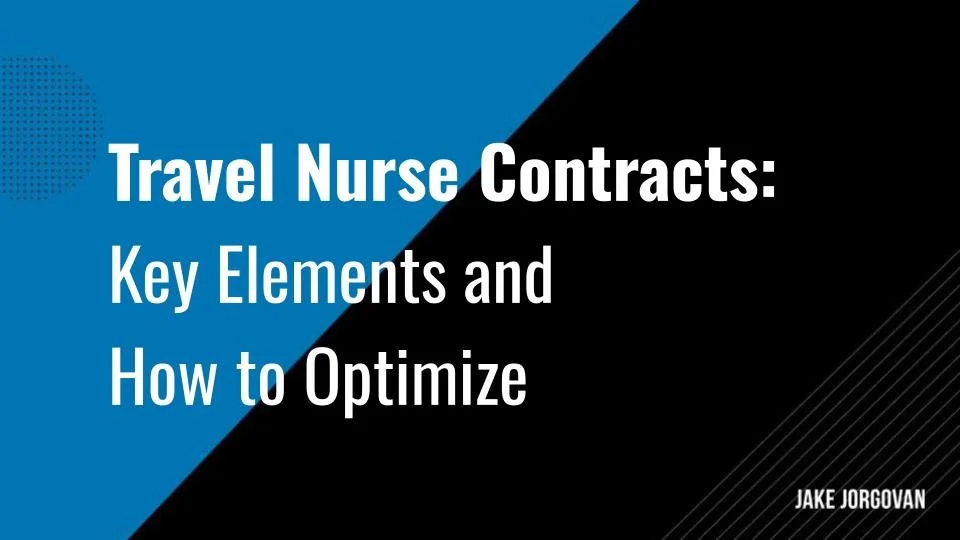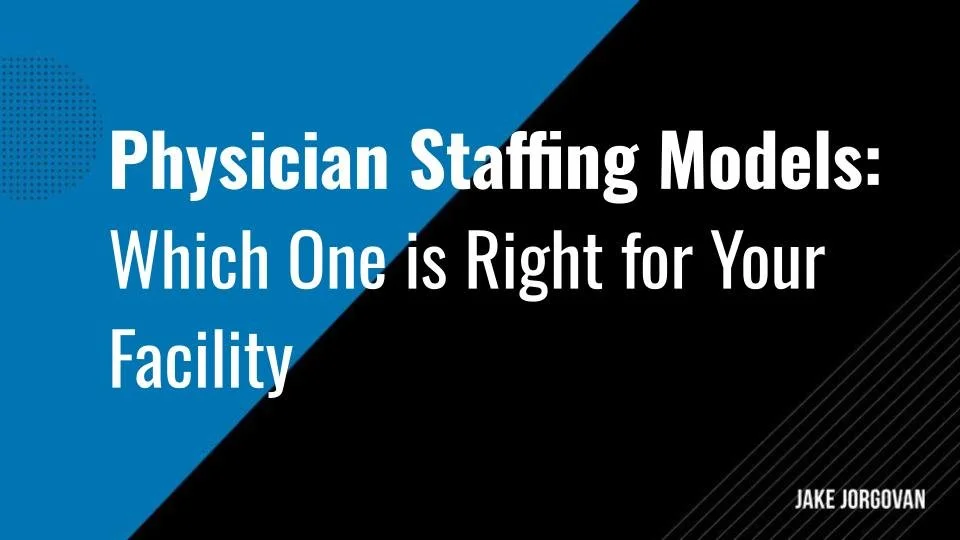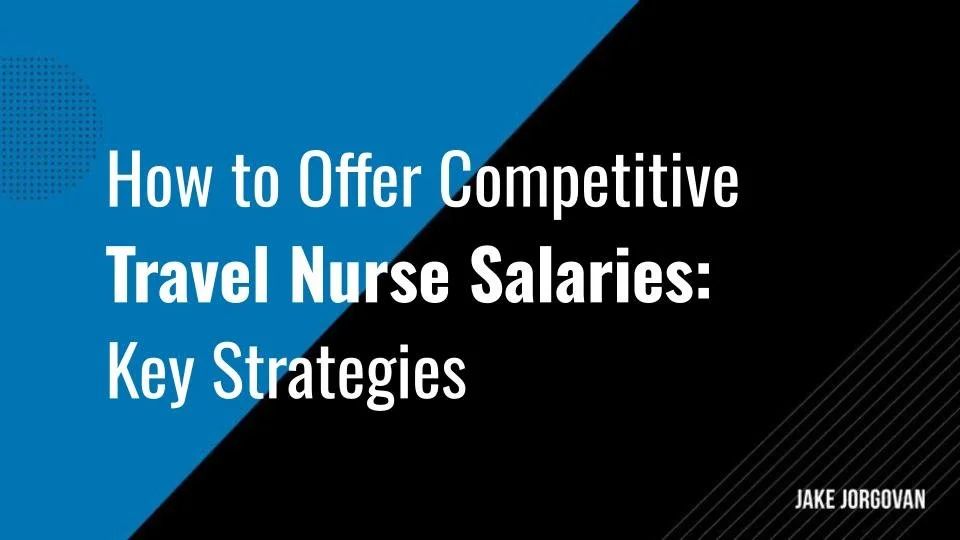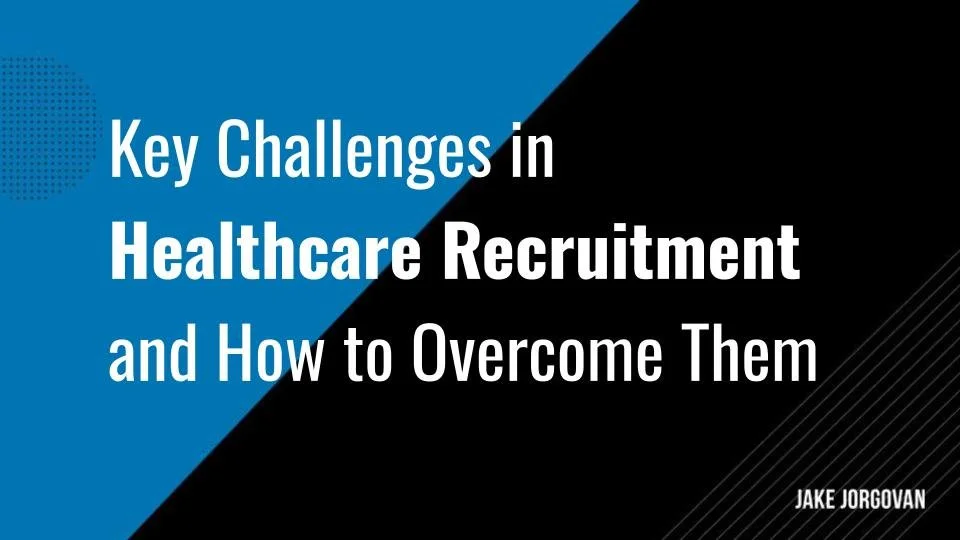5 Unique Ways Healthcare RPO Optimizes Your Specialized Nurse Staffing Efforts
Optimizing specialized nurse staffing is a key component when it comes to succeeding in healthcare. Healthcare Recruitment Process Outsourcing (RPO) offers innovative solutions.
In fact, the recruitment process outsourcing market is projected to grow by $13.93 billion, at an impressive rate of 19.6% per year, between 2024 and 2029.
Are you struggling to find the right specialized nurses?
Discover 5 unique ways RPO can transform your staffing efforts.
This article dives into the benefits and strategies of healthcare RPO.
Read on to learn how it can streamline your hiring process, improve efficiency, and ensure you get the best talent.
Why Do You Need Specialized Nurse Staffing?
There are many different nurse specialties, like those shown in the image below:
Specialized nurse staffing is crucial for maintaining high-quality patient care in your healthcare facility. Skilled nurses bring expertise to specific areas and improve outcomes. Specialized staffing addresses the unique needs of different patient populations and ensures that care is effective.
Specialized nurses possess advanced training and knowledge in specific medical fields. This expertise allows them to perform complex procedures with precision. They can manage critical situations effectively, which reduces the risk of complications. Having the right specialized nurses on your team significantly enhances the quality of care your facility provides.
Efficient staffing is about placing the right nurse in the right role. Specialized nurses excel in their respective fields, which leads to better patient outcomes. This alignment of skills and roles minimizes errors and enhances patient safety. It also improves the overall patient experience, as patients receive care from professionals who understand their specific needs.
Effective staffing strategies also contribute to staff satisfaction and retention. Nurses working within their areas of expertise tend to be more satisfied with their jobs. This satisfaction translates to lower turnover rates and saves your facility the costs associated with hiring and training new staff. A study reported that the turnover rate per year for nurses in the United States is approximately 18%. Additionally, a stable nursing team promotes continuity of care, which is vital for patient trust and satisfaction.
Key Trends in Nurse Staffing
Let’s first check out some of the main current trends in nurse staffing:
1. Increased Reliance on Travel Nurses
Many healthcare facilities are turning to travel nurses to fill staffing shortages. Now, there are more than 1,733,502 traveling nurses working in the US. This trend helps address sudden demand spikes, seasonal fluctuations, and crisis situations. However, it also increases staffing costs and creates challenges in maintaining consistent optimal patient care quality. Facilities must learn how to balance permanent and temporary staff effectively.
2. Greater Use of AI and Predictive Analytics
Healthcare organizations are using AI-powered workforce-planning tools to optimize scheduling, predict staffing shortages, and match nurses with patient needs. These technologies improve efficiency, reduce burnout, and ensure high-quality care by ensuring the right number of nurses are available at the right time.
3. Growing Demand for Specialized Nurses
The need for nurses with specialized skills—such as critical care, oncology, and neonatal nursing—is rising due to an aging population and increasing chronic disease prevalence.
As Health Carousel Nursing & Allied Health puts it:
Facilities need to adapt their recruitment and training strategies to attract and retain skilled nurses in high-demand specialties.
4. Emphasis on Nurse Retention and Well-Being
High turnover rates are a significant challenge, with burnout being a leading cause. In fact, there’s been a 12% increase in nurses leaving the workforce due to emotional causes. That’s why more healthcare organizations are implementing flexible scheduling, wellness programs, and mentorship initiatives to improve nurse satisfaction and reduce attrition. Long-term retention strategies are essential for maintaining stable staffing.
“A culture of openness and support that encourages practitioners to seek help when needed, without fear of stigma or negative consequences, is also essential for staff’s psychological safety and long-term well-being. While resilience training is one potential solution, it only has a modest impact on reducing burnout among healthcare professionals.” (Mohammad S Razai, Pavan Kooner, Azeem Majeed, Strategies and Interventions to Improve Healthcare Professionals’ Well-Being and Reduce Burnout)
5. Shift Toward Value-Based Staffing Models
Rather than relying solely on nurse-to-patient ratios, many facilities are adopting value-based staffing models. These approaches focus on patient outcomes, acuity levels, and workforce efficiency rather than just headcount. This shift ensures that staffing strategies align with care quality goals and financial sustainability.
5 Ways Healthcare RPO Optimizes Specialized Nurse Staffing
Now that we’ve seen why you need specialized nurse staffing and the trends to consider, let’s get into the real reason you’re here. We’ll discuss key ways in which healthcare RPOs can help you scale, so keep reading below.
1) Tailored Talent Pool Development
Working with a healthcare RPO offers numerous advantages in optimizing specialized nurse staffing efforts. Among these, the development of a tailored talent pool stands out. The graphic below shows some of the main benefits here.
Cultivating a customized pool of qualified candidates allows healthcare RPOs to ensure your staffing needs are met with precision and efficiency. Here's how you can leverage this benefit:
Identify Specific Needs: Start by clearly defining the qualifications, skills, and experience required for your specialized nursing roles. This will help the RPO focus on candidates who meet your precise criteria.
Collaborate on Talent Strategy: Work closely with your RPO to develop a talent acquisition strategy that aligns with your organizational goals. This includes understanding your culture, work environment, and long-term staffing plans.
Utilize Data and Analytics: Leverage the RPO's access to advanced analytics to identify trends and patterns in candidate sourcing and hiring. This data-driven approach helps predict future staffing needs and ensure a continuous pipeline of qualified candidates.
Engage Passive Candidates: The RPO can tap into a network of passive candidates who are not actively seeking new opportunities but may be interested in the right role. This expands your reach beyond traditional recruitment channels. Notably, 37% of job seekers are passive candidates open to new opportunities.
Enhance Employer Branding: A strong employer brand attracts top talent. Collaborate with your RPO to highlight what makes your organization an attractive place to work, emphasizing benefits, career growth opportunities, and a supportive work environment.
Insider Tip:
We recommend setting up regular strategy sessions with your RPO to review and refine your talent pool development approach. These meetings should focus on emerging trends, candidate feedback, and any shifts in your staffing needs. This engagement ensures that your talent pool remains robust and aligned with your evolving requirements.
2) Advanced Matching Algorithms
Implementing advanced matching algorithms with the help of your RPO enhances your nurse staffing efforts. These algorithms streamline the process and ensure the right fit for both the nurse and the healthcare facility. Here’s how to make the most of his benefit.
To optimize specialized nurse staffing, start by defining clear matching criteria. Provide your RPO with detailed information about your staffing needs, specifying the required skills, certifications, and experience levels for each position. This clarity ensures that only qualified candidates are considered.
Next, use predictive analytics to refine the selection process. The RPO’s advanced matching algorithms incorporate predictive analytics to identify potential candidates who not only meet your criteria but are also likely to succeed in your work environment. This data-driven approach enhances the precision of your hiring decisions.
Streamlining candidate screening is another key advantage. By automating initial screening processes, the RPO ensures that only the most suitable candidates are presented for final interviews. This reduces the administrative burden on your internal team and saves valuable time.
Improving the candidate experience is equally important. The RPO’s technology facilitates a seamless application process, making it easier for potential candidates to apply and engage. A smooth experience increases the likelihood of securing top-tier talent and strengthens your employer brand. Notably, 60% of candidates report having had a poor candidate experience, often due to a lack of communication or a complicated application process. Enhancing this experience can lead to better hiring outcomes.
Finally, continuous monitoring and adjustment are essential for long-term success. Regularly review the performance of the matching algorithms with your RPO, assessing feedback and hiring outcomes. Adjust the criteria as needed to improve the quality of matches and ensure ongoing optimization.
Insider Tip:
We suggest conducting periodic feedback sessions with both newly hired nurses and your existing staff. This feedback will help refine the matching criteria and improve the overall effectiveness of the algorithm. It ensures that the algorithm remains aligned with your evolving needs and helps in retaining high-quality staff.
3) Customized Onboarding Programs
Another key benefit of working with a healthcare RPO is the creation of customized onboarding programs. The onboarding process involves a number of stages, as shown below:
These programs are tailored to ensure that new hires integrate smoothly and effectively into your organization. Here’s how to maximize this benefit:
Assess Onboarding Needs: Work with your RPO to identify the specific training and orientation needs of your specialized nursing staff. This includes understanding the unique aspects of your facility's protocols and organizational culture. Notably, organizations with a strong onboarding process improve new-hire retention by 82%.
Develop Comprehensive Training Modules: Collaborate with the RPO to create detailed training modules that cover essential topics such as clinical procedures, patient care standards, and compliance requirements. Tailor these modules to address the specific skills and knowledge gaps identified during the assessment.
Implement a Structured Orientation Schedule: Design an orientation schedule that gradually introduces new hires to their roles and responsibilities. This phased approach helps them acclimate to their new environment without feeling overwhelmed.
Provide Continuous Support: Ensure that your RPO includes ongoing support and mentorship as part of the onboarding program. Assign experienced staff members to mentor new hires and provide them with the guidance they need to succeed.
Evaluate and Improve: Regularly assess the effectiveness of your onboarding program through feedback from new hires and their supervisors. Use this feedback to make necessary adjustments and improvements, ensuring the program remains relevant and effective.
Insider Tip:
It's helpful to set up a feedback loop that collects information from new hires and also engages them in focus groups. These focus groups can provide a wide range of deeper insights into the onboarding experience, allowing you to fine-tune the program and address any challenges promptly. This approach helps retain talent and improve overall job satisfaction.
4) Strategic Workforce Planning
Strategic workforce planning is essential for maintaining efficiency and adaptability in healthcare settings. Working with a healthcare RPO provides significant advantages in this area which enables you to anticipate and respond to staffing needs effectively. The graphic below shows some key elements of strategic workforce planning:
To optimize your specialized nurse staffing efforts, start by thoroughly analyzing your current workforce. Identify gaps, strengths, and areas needing improvement. This data provides a solid foundation for strategic planning and ensures that staffing decisions align with your facility’s needs.
Next, collaborate with your RPO to develop accurate forecasts of future staffing requirements. Consider factors such as patient volume trends, seasonal variations, and upcoming projects or expansions. Proactive planning helps maintain adequate staffing levels and prevents last-minute hiring challenges.
Creating contingency plans is also essential. Unexpected staffing challenges—such as sudden increases in patient load or unforeseen staff shortages—can disrupt operations. In fact, 59% of nurses reported that poor staffing levels had reached a point where they regularly felt patient care had been compromised and unsafe. Having well-structured backup plans in place ensures that service quality remains consistent, even during high-demand periods.
Optimizing staff scheduling further enhances workforce efficiency. By using the RPO’s expertise, you can implement scheduling strategies that reduce burnout, improve job satisfaction, and enhance patient care. A well-balanced schedule contributes to a more engaged and productive nursing staff.
Finally, leverage technology solutions to streamline workforce management. The RPO’s tools, such as automated scheduling systems, real-time staffing analytics, and mobile communication platforms, can significantly improve operational efficiency. Integrating these technologies allows for better decision-making, faster response times, and a more adaptable workforce.
5) Continuous Performance Monitoring
Effective staffing in healthcare requires ongoing evaluation and adjustment. Continuous performance monitoring, provided by healthcare RPOs, ensures that staffing efforts remain aligned with your goals.
The graphic below shows how this is one of the most important components of employee performance management:
This process identifies issues before they escalate and maintains high standards of care. Here’s how to optimize your performance monitoring:
Set Clear Performance Metrics: Define specific performance metrics for both individual staff and overall staffing effectiveness. Metrics might include patient satisfaction scores, staff turnover rates, and compliance with protocols.
Utilize Real-Time Data: Leverage the RPO’s access to real-time data to monitor performance. This immediate feedback allows for swift adjustments and continuous improvement.
Conduct Regular Reviews: Schedule regular performance reviews with your RPO. These should focus on assessing the effectiveness of current staffing strategies and making necessary adjustments. Research indicates that regular evaluation of staff management practices is linked to improved patient satisfaction and reduced mortality rates.
Implement Feedback Loops: Establish robust feedback loops with both staff and patients. Use this feedback to refine staffing practices and address any emerging issues promptly.
Adjust Strategies Proactively: Use the insights gained from performance monitoring to adjust staffing strategies proactively. This ensures that your team remains adaptable and responsive to changing needs.
Insider Tip:
We suggest integrating advanced analytics tools that track performance metrics over time. Regularly review these trends with your RPO to identify patterns and predict future staffing needs. This approach enhances efficiency and ensures consistently exceptional patient care.
Common Mistakes When Using RPO to Hire Nurses
Despite its many advantages, using RPO to help with nurse staffing also comes with some challenges. Here are some common mistakes you might run into here, along with how to avoid them.
Not Defining Clear Expectations and Needs
Healthcare facilities often fail to clearly communicate their staffing needs to the RPO provider, which can result in candidates who don’t align with the facility's requirements or culture.
To avoid it, start detailed conversations about job descriptions, qualifications, and cultural fit before engaging an RPO provider. Set clear expectations on timelines, salary expectations, and required experience levels.
Overlooking the Importance of Nurse Retention Rates
RPO providers may focus heavily on filling positions quickly, sometimes at the expense of long-term retention strategies, which can lead to high turnover rates.
Instead, prioritize candidates who align with the facility's long-term vision. Work with the RPO to implement retention-focused hiring strategies, such as career development opportunities and support systems that encourage employee satisfaction.
Inadequate Screening and Vetting Process
Some healthcare facilities rely too heavily on the RPO provider’s process without thorough vetting, resulting in the hiring of unqualified or improperly credentialed nurses.
It’s best to collaborate with the RPO to implement a comprehensive screening process that includes verifying licenses, certifications, and experience in specific medical fields. Ensure a combination of behavioral and technical assessments is in place.
Ignoring Local Regulatory and Compliance Requirements
RPO providers unfamiliar with local healthcare regulations might overlook state-specific licensing requirements, leading to compliance issues.
To avoid that, make sure the RPO provider is well-versed in local laws, certifications, and any specific regulatory requirements that apply to nurses in your region.
Failing to Build Strong Communication with the RPO Team
A lack of ongoing communication with the RPO provider can result in misunderstandings and misalignments between the facility’s needs and the candidates being recruited.
If that’s what you want to avoid, establish a regular feedback loop with the RPO provider. Hold weekly or bi-weekly check-ins to review progress, discuss challenges, and adjust strategies as needed.
Succeed with RPO for Specialized Nurse Staffing
Optimizing specialized nurse staffing is a strategic advantage.
Healthcare RPO provides unique, effective solutions. Leveraging these methods allows your facility to be staffed with top talent.
Are you ready to transform your staffing approach?
Think about the impact of a well-staffed team on patient care and outcomes. Implementing these 5 RPO strategies will be a game-changer, so start leveraging them today.




























